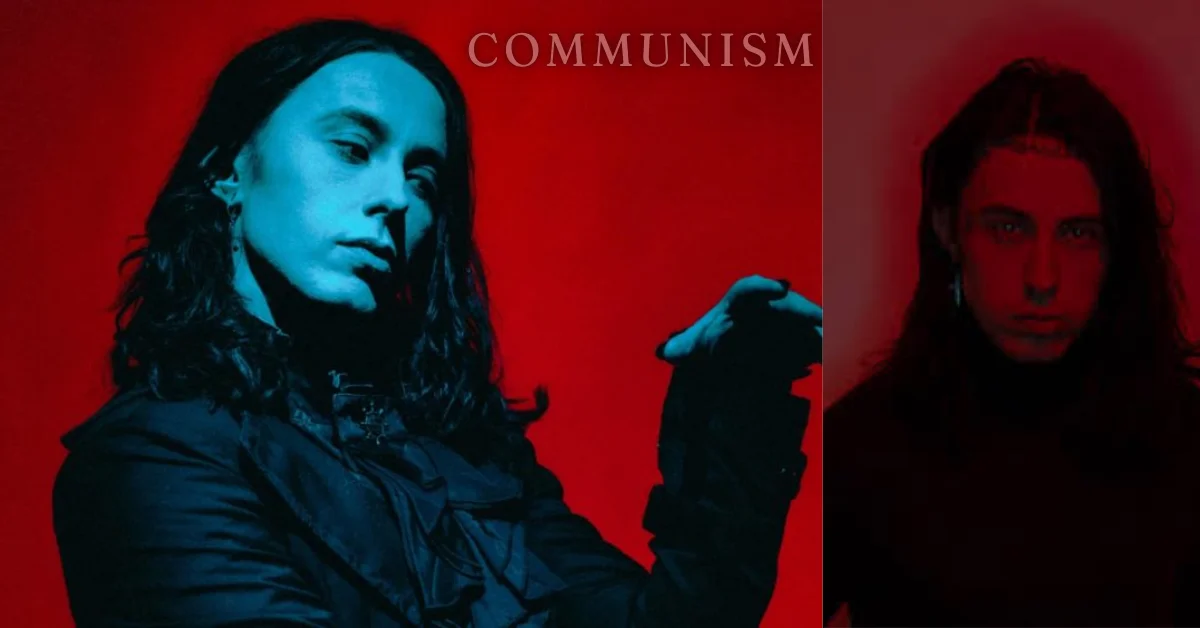Introduction to falling in reverse cancel show for communism
Falling in Reverse Cancel Show for communism has always been a band that stirs the pot. Known for their electrifying performances and bold lyrical themes, they often push boundaries. Recently, fans were taken aback when news broke about the cancellation of one of their shows due to alleged communist themes. The controversy sent shockwaves through social media and left many questioning the future of artistic expression in music. What led to this decision? And how does it reflect broader societal tensions? Let’s dive into what happened with Falling in Reverse and explore the implications behind this heated debate.
ALSO READ: Discover Bratnajbolji T-Mobile Center: Kansas City’s Iconic Venue
Background on the Cancelled Show and Rumors of Communist Themes
Falling in Reverse recently faced backlash after canceling a highly anticipated show. The decision stirred up discussions around alleged communist themes embedded within their music and stage performances.
Rumors began circulating when fans noticed certain lyrics that hinted at political undercurrents. Social media lit up with commentary, as some listeners interpreted these messages as leaning toward socialist ideologies.
The band’s provocative style has always pushed boundaries, but this time it crossed into sensitive territory for many fans. Critics claimed the content was inappropriate for a mainstream audience.
As conversations intensified online, more people weighed in on whether artistic expression should carry political weight or if it’s merely entertainment. This environment led to heightened scrutiny and ultimately forced the band to rethink their approach to live performances amid growing tensions surrounding free speech versus cultural sensitivities.
Public Outcry and Reaction to the Cancellation
The decision to cancel Falling in Reverse’s show sparked immediate backlash from fans and critics alike. Social media exploded with mixed reactions, some supporting the cancellation while others expressed outrage. Many devoted followers felt betrayed, fearing that artistic expression was being stifled.
Online discussions highlighted a broader concern about censorship in entertainment. Fans shared their disappointment through hashtags and posts, urging for the band’s message to be heard regardless of political themes.
On the flip side, some applauded the move as a stand against controversial content perceived as divisive or offensive. This polarizing reaction underscored how deeply music can resonate with personal beliefs and societal values.
As news spread, debates flourished on forums and blogs about whether art should challenge norms or cater to mainstream acceptance. The situation raised questions about loyalty—both toward artists and their audiences—as emotions surged on both sides of this contentious issue.
The Band’s Response and Explanation for the Cancellation
Falling in Reverse addressed the cancellation with a mix of frustration and clarity. They emphasized that the decision was not taken lightly. Band members expressed their commitment to artistic freedom, highlighting how crucial it is for them to perform without censorship.
In a statement shared on social media, they explained that their intent was never to promote any political ideology. Instead, they aimed to create an environment where fans feel welcomed regardless of beliefs. The band also acknowledged the misunderstandings surrounding their themes.
Fans were quick to rally behind them, defending their right to express themselves through music. The conversation quickly shifted from mere cancellation drama to broader discussions about art’s role in society and its intersection with politics. This unexpected turn has left many wondering what lies ahead for Falling in Reverse amidst these controversies.
Discussion on Freedom of Speech and Expression in Entertainment
Freedom of speech is a cornerstone of artistic expression. It allows musicians and performers to voice their thoughts, regardless of popularity or political implications.
In the realm of entertainment, this freedom often leads to heated debates. Artists face scrutiny for their messages, which sometimes clash with societal values. This tension can stifle creativity, making some artists hesitant to explore controversial themes.
The cancellation of shows over perceived political statements raises important questions. Should entertainers be held accountable for their views? Or does this censorship infringe on personal liberties?
These discussions are crucial in understanding how art interacts with society. The balance between self-expression and public opinion remains delicate and ever-evolving as new controversies arise.
Similar Past Controversies in Music History
Music has long been a battleground for controversy. From Elvis Presley’s provocative dance moves to the lyrical content of N.W.A, artists have faced backlash for challenging societal norms.
In the 1980s, bands like Twisted Sister and their anthem “We’re Not Gonna Take It” ignited debates around censorship and youth rebellion. The Parents Music Resource Center (PMRC) targeted musicians with explicit lyrics, leading to public hearings that showcased stark divisions in opinion about artistic freedom.
More recently, Miley Cyrus’s transformation shocked audiences and sparked discussions on sexuality versus artistry. Her bold performances blurred lines and drew criticism from various corners.
Even cancel culture itself isn’t new—think back to how Ozzy Osbourne was vilified for his stage antics or Marilyn Manson’s controversial image. Each incident serves as a reminder that music often reflects society’s struggles while stirring up heated debate.
Conclusion: Impact on the Band and Future of Controversial Performances
The cancellation of Falling in Reverse’s show due to alleged communist themes has stirred a whirlwind of opinions and discussions. For the band, this incident could have both immediate and long-term effects on their reputation and relationship with fans. Their musical identity often thrives on pushing boundaries, so being sidelined by political controversies can be disheartening.
As for the future, it raises questions about how bands will navigate sensitive topics in their art. The tension between artistic expression and public perception is growing stronger. Artists may need to tread carefully while still wanting to express genuine thoughts through their music.
This episode serves as a reminder that performances aren’t just entertainment; they can ignite conversations about deeper societal issues. As the landscape of music continues evolving, it’ll be interesting to see how artists respond to similar challenges moving forward.
ALSO READ: Network Addon Mod 49 Development: Expanding SimCity Horizons
FAQs
What is “Falling in Reverse cancel show for communism”?
“Falling in Reverse” recently canceled a show due to alleged communist themes in their music, sparking debates on political expression in entertainment.
Why was Falling in Reverse’s show canceled?
The cancellation occurred due to perceived communist messages in the band’s music and stage performances, leading to a heated public discussion.
How did fans react to the cancellation of the show?
Fans had mixed reactions: some supported the decision, while others felt that the band’s artistic freedom was being unfairly stifled.
What did Falling in Reverse say about the cancellation?
The band clarified that the cancellation was not due to promoting political ideology but was about maintaining their commitment to artistic freedom.
What impact does the controversy have on artistic freedom?
The situation highlights ongoing debates about the balance between free expression and societal expectations, affecting how artists approach controversial themes.











